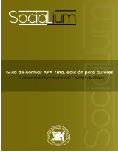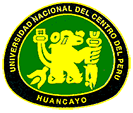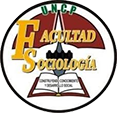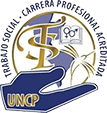Family conditions that favor the permanence of accompaniment in the treatment of cancer patients in Solca, Portoviejo
DOI:
https://doi.org/10.26490/uncp.sl.2020.4.2.575Keywords:
oncology patients, SOLCA Hospital, family accompaniment, socioeconomic, psychosocialAbstract
The family during the illness and hospitalization of a relative with an oncological diagnosis, plays an essential role in providing the accompaniment in their treatment process, since that support will help them in their improvement and strength to fight for their lives. The objective of the study is to characterize the family conditions that favor the accompaniment in the treatment of cancer patients. For this purpose, a study was carried out with a positivist approach, at a descriptive level with a non-experimental cross section. A survey was applied to 20 patients receiving their oncological treatment within the Solca Portoviejo facilities and 20 surveys to family members or caregivers who were accompanying these patients. The results made it possible to verify that the family conditions that favor the permanence in the treatment accompaniment in an oncological family member is due to the existence of the strengthening in family, social relationships, good economic status, emotional stability in the members of the family group. Oncological patients were seen arriving alone to receive their treatment and even came for an examination or medical appointment and presented without any companion. It is important to highlight that the family conditions that favor the permanence of accompaniment in the treatment of cancer patients, is a radical commitment and responsibility that families must have to cope with the patient's disease.
Downloads
References
ASCO. (2018). De qué manera el cáncer afecta la vida familiar. Obtenido de https://www.cancer.net/es/asimilaci%C3%B3n-con-c%C3%A1ncer/c%C3%B3mo-hablar-con-los-familiares/de-qu%C3%A9-manera-el-c%C3%A1ncer-afecta-la-vida-familiar
Boncompagni, L. (2015). De qué manera el cáncer afecta la vida familiar. Obtenido de https://www.fme.org.ar/acompanamiento-familiar-del-paciente-oncologico/
Cabrera, A., Ferraz, R. (2011) Impacto del cáncer en la dinámica familiar. Revista Biomedicina, Medicina Familiar y Comunitaria, 6(1), 42-48
Cáncer, A. E. (05 de 12 de 2010). AECC. Obtenido de https://www.aecc.es/sites/default/files/migration/actualidad/publicaciones/documentos/revista-19.pdf
Die Trill, M. (2006) Impacto Psicosocial del Cáncer. Psicooncología Contacto, 6 19-21
FEFOC. (2013). Familia y Cáncer . Obtenido de https://www.familiaycancer.org/familia/
Font, A. (2000). La dimensió psicológica del càncer: un model integrador de la qualitat de vida dels malalts en la presa de decisions terapèutiques (p. 343-355). Libro de ponencias del Setzè Congrés de Metges i Biòlegs de Llengua Catalana. Recuperado de http://taller.iec.cat/cmibllc/fons/16/16.01.041.pdf
Gavilanez, A. C. (08 de 06 de 2014). Obtenido de https://repositorio.uta.edu.ec/bitstream/123456789/7650/1/Ch%C3%A9rrez%20Gavilanes%20Alejandra%20Patricia.pdf
GEPAC. (2016). Recomendaciones básicas para pacientes. Obtenido de http://www.gepac.es/multimedia/gepac2016/pdf/GU%C3%8DA_TOXICIDAD_QUIMIOTERAPIA.pdf
Instituto Nacional del cáncer. (13 de 07 de 2017). Familiares a cargo de pacientes de cáncer (PDQ®)–Versión para pacientes. Obtenido de https://www.cancer.gov/espanol/cancer/sobrellevar/familia-y-amigos/familiares-a-cargo-pdq
Infocáncer. (03 de 07 de 2019). Hablar del cáncer con la familia. Obtenido de https://www.infocancer.org.mx/?c=emociones-y-cancer&a=hablar-del-cancer-con-la-familia
Merino, Y. (2019). Estrategias de acompañamiento psicológico para los familiares de pacientes con cáncer en etapa term. Revista Digital , 1-26.
Muñoz Cobos, F., Espinosa, JM., Portillo, Benítez del Rosario, MA. (2002). Atención a la familia. Atención Primaria, Series Cuidados Paliativos, 30(9) 576-580
Muñoz Cobos, F., Espinosa, JM., Portillo, J., Rodríguez González de Molina, G. (2002). La Familia en la Enfermedad Terminal. Medicina Familiar, 3(4) 262-268
Rolland, JS. (2000) Familias, enfermedad y discapacidad: una propuesta desde la terapia sistémica. Barcelona: Editorial Gedisa.
Ruda, L. (1998) Representaciones acerca del cáncer y su origen en padres diagnosticados con esta enfermedad. Departamento de Psicología, Pontificia Universidad Católica del Perú.
Salud, O. M. (12 de 07 de 2003). OMS. Obtenido de https://www.who.int/mediacentre/news/releases/2003/pr27/es/
Salud, O. M. (22 de 07 de 2005). Control del Cáncer. Obtenido de https://www.mscbs.gob.es/organizacion/sns/planCalidadSNS/docs/Modulo3.pdf
Salud, O. M. (01 de 09 de 2007). OMS. Obtenido de https://apps.who.int/iris/bitstream/handle/10665/44025/9789243547343_spa.pdf;jsessionid=EB585A18548D66E1B68071F1CFBAA8A1?sequence=1
Sánchez, C. (s.f.). Cannabis y quimioterapia. Obtenido de https://www.fundacion-canna.es/cannabis-y-quimioterapia
Serrano, M. M. (01 de 04 de 2017). Bonding. Obtenido de http://bonding.es/acompanamiento-una-persona-cancer/.
Soteras, A. (2020). Coronavirus: Medidas para evitar que los pacientes de cáncer pisen el hospital. Obtenido de https://www.efesalud.com/coronavirus-cancer-pacientes-hospitales
Terradez, A. (20 de 03 de 2020). La importancia crucial del acompañamiento a enfermos de cáncer. Obtenido de https://www.objetivobienestar.com/cancer-enfermos-importancia-acompanamiento_41986_102.html
Zubiaga, I. O. (30 de 10 de 2016). El Impacto del Cáncer en la Familia. Obtenido de https://www.avntf-evntf.com/wp-content/uploads/2016/11/Ovelar-Irene-Trab.-3%C2%BA-online-14.pdf.
Downloads
Published
Issue
Section
License
Copyright (c) 2020 Lady Gorozabel, Ligia Estela Loor Lino, Mercedes de los Angeles Cedeño Barreto

This work is licensed under a Creative Commons Attribution-NonCommercial-ShareAlike 4.0 International License.








.jpg)












